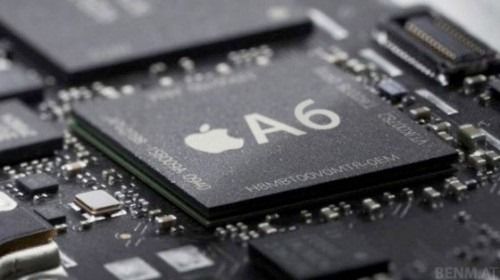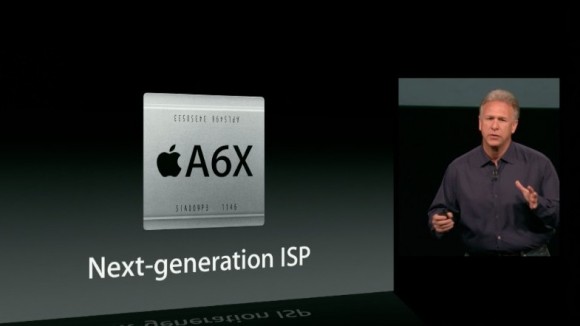
Despite the ongoing legal wrangling over mobile technology patents, Samsung to this date remains the only supplier of Apple-designed processors which drive iPhones, iPads and iPods. The South Korean conglomerate has been exclusively building these chips according to Apple’s blueprints at its multi-billion dollar fabrication facility in Austin, Texas.
However, recent chatter increasingly points to rival Taiwan Semiconductor Manufacturing Company (TSMC) possibly stealing the Apple contract from Samsung as Apple looks to further distance itself from its chief rival.
A new report from South Korea alleges Apple has now actually excluded Samsung as a future mobile processor supplier. In turn, TSMC, which is the world’s largest independent semiconductor foundry, may produce a significant portion, even possibly all of mobile chips for Apple’s next-gen iPhone 6 to be released in 2014…
Money Today Network, a Seoul-based broadcasting unit of Money Today, filed a report Thursday quoting a Samsung Electronics official as saying the company has not received an order for 20-nanometer chips from Apple for the next year’s iPhone upgrade , the iPhone 6. As a result, the story notes, internal tension inside Samsung is rising.
The story goes on to assert that TSMC may produce all chips for the iPhone 6, but Korea Investment & Securities researcher Seo Won-seok cautions Samsung is likely to secure about 70 percent of Apple chips in 2014, with TSMC supplying the rest.
This is another important piece which helps complete Apple’s semiconductor puzzle.

Unlike TSMC, Samsung, a conglomerate with diverse interests, supplies Apple with chips and other components while also directly competing with the California company on mobile devices.
Author Sam Grobart in a wide-ranging Samsung profile in Bloomberg Businessweek explains how the Galaxy maker uses its production depth in powerful ways.
It’s been often argued that Samsung’s components arm is separate from its mobile gadget business, with the former being walled off from the latter, with one side not knowing what the other is doing in order not to antagonize its major clients like Apple.
That may not be entirely the case, Grobart notes:
Few people who watch the company think Samsung keeps itself in the dark. New technologies take time to develop, particularly if that technology is needed in large quantities.“Having that early-stage insight into the supply chain has been one of the key factors to give them an edge,” says Neil Mawston of Strategy Analytics. “They can see three years ahead.”
Also, this:
However the many court cases play out, Samsung wouldn’t have to break the law to use its position as a supplier to its advantage. If a manufacturing customer merely approaches Samsung with a request for a new kind of processor, that information is valuable.“Having a road map of, say, Apple and knowing what competitors are doing is pretty useful,” says Bernstein’s Newman. “It’s not copying, and it’s not illegal. You just know that in 2013, Apple’s going to need a quad-core processor.”
We previously heard Apple may have ordered a “very large volume” of chips from TSMC as the company reportedly looks to pit Samsung, TSMC and Intel against each other in a bid to have the world’s largest semiconductor makers compete for contracts to build the engine that powers iThings.

Samsung’s apt mission statement on an oversized chip outside its complex in Yongin, a city about 45 minutes south of Seoul, South Korea.
TSMC was recently thought to be finalizing production designs for Apple’s A7 chip. According to the latest chatter, the foundry began pilot production of the A7 chip earlier this month. TSMC should have first prototypes of the A7 package ready as early as in May, with full scale production slated for early-2014.








0 comments :
Post a Comment
Share your ideas with us .. let us know your thoughts about this .